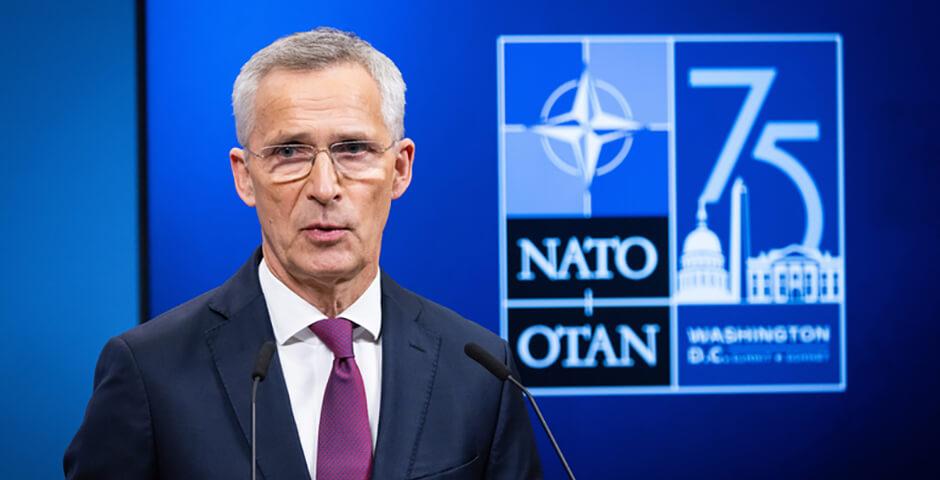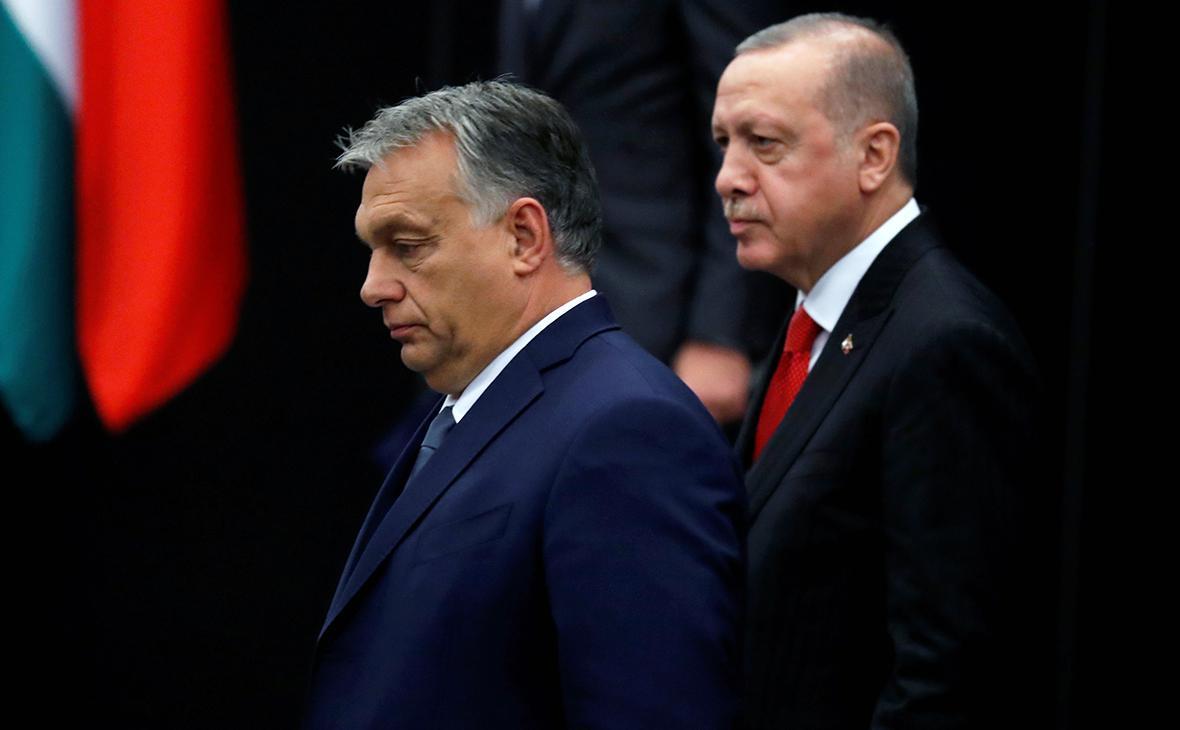Supporting Ukraine while eyes are on China Washington Summit unveils NATO’s dual focus
Despite their outwardly bold rhetoric, the participants of the Washington NATO summit softened their statements in the text of the adopted declaration. As previously reported by Caliber.Az, while affirming the continuation of the Alliance's support for Ukraine "on its irreversible path to full Euro-Atlantic integration, including NATO membership," the document specified that the organization will be ready to invite Ukraine to join only if all allies agree and Kyiv meets the necessary conditions.
Furthermore, while the document expressed the allies' intention to provide Ukraine with at least €40 billion in military aid over the next year, it did not declare their long-term commitments, which NATO Secretary General Jens Stoltenberg had lobbied for.

Many might think that China's refracted stance demonstrated the unity of all the countries participating in the forum. As Stoltenberg emphasized, "for the first time, 32 allies jointly identified China has become a decisive enabler of Russia’s war against Ukraine." However, this unity is only superficial.
The document's identification of China as a state that continues to present "systemic challenges to Euro-Atlantic security" has already been stated multiple times. While the issue of potential anti-China sanctions was discussed at the summit, as the Alliance Secretary General directly pointed out, NATO is not a sanctions-imposing organization. He immediately added that "allies will make decisions individually." In other words, this matter too was limited to reiterating well-known maxims by shifting the adoption of important anti-China steps to NATO member states.
And how could it be otherwise, if Emmanuel Macron is playing his own game with Beijing, and given the defeat of Olaf Scholz's and Macron's parties in the European Parliament elections and the weakening of their positions in the domestic field, it is unlikely that they can dictate the fashion for their countries to fully support documents signed by persons who do not enjoy significant authority.
Lithuanian President Gitanas Nauseda has already said that Macron is not taking measures to implement his plan to send NATO military instructors to Ukraine: "We do not see that President Macron is looking for further steps to address this problem. In unison with this, Sara Nanni, a German security policy expert of the Green Party, believes that Chancellor Scholz should provide an explanation "as soon as possible" for plans to deploy new long-range US missiles on German territory.
The "ours and yours" approach to the world's most important issues has been maintained in Russia as well. On the one hand, there were promises of new types of weapons, coupled with huge financial injections for Ukraine, and, on the other hand, NATO did not cross the Rubicon.
As US Secretary of Defence Lloyd Austin said: "We will not be dragged into Putin's reckless war of choice. But we will stand by Ukraine as it fights for its sovereignty and security. We will defend every inch of NATO".
It is therefore no coincidence that observers have noted that, after condemning "irresponsible nuclear rhetoric and coercive nuclear signals" from the Kremlin, those who adopted the declaration declared their readiness to continue to maintain channels of communication with Russia in order to "reduce risks and prevent escalation".
However, this formulation raises a question: Why was the peacekeeping initiative of Hungarian Prime Minister Viktor Orbán ostracized? Wasn’t he advocating for “preventing escalation”? Orbán is known for his immense patience, which is why, during the summit, he and Turkish President Recep Tayyip Erdogan expressed their support for the idea of convening an international peace conference on Ukraine with Russia’s involvement.

There is also another subtle point that emerged at the Washington forum. The declaration included a provision for NATO to take over a significant part of "the coordination of military equipment and training for Ukraine from the US-led coalition." This shift indicates that the focus of support for Kyiv is beginning to pivot from the United States to NATO.
As we have previously noted, this shift clearly confirms the thesis that the West genuinely fears the possibility of Donald Trump occupying the US presidency, given his prior statements about rolling back the current policy. NATO’s assumption of responsibility for military assistance to Kyiv, according to several experts, might help to navigate or circumvent potential restrictions imposed by Trump if he were to return to the Oval Office.
Of course, the reaction of individual countries to some provisions of the declaration and to the statements of a number of politicians on the margins of the summit was not long in coming.
The first to respond, to no one’s surprise, was Beijing, which, through a statement by the Chinese mission to the EU, warned NATO against "provoking confrontation" over its ties with Moscow. The statement emphasized that China "has never provided lethal weapons to either side of the conflict, while exercising strict export controls on dual-use goods." It concluded by urging NATO to "stop inflating the so-called Chinese threat and pushing geosocial rivalry," and to adhere to "its positioning as a defensive organization."
And one more thing. Kyiv has announced plans to hold a new peace summit, but with the participation of Russia. According to a number of experts, this proposal appeared in order to intercept the initiative to hold an international conference with this agenda from Orbán and Erdogan.
Thus, even the naked eye can see that, although the entire work of the summit was saturated with pro-Ukrainian rhetoric and sound promises in favor of Kyiv, the main vector for NATO is the Chinese vector. Consequently, any conflicts taking place in one or another region of the world should be viewed through the prism of American-Chinese rivalry. Or, as it is elegantly presented today, through the geocompetition between Washington and Beijing.
By Teymur Atayev
The views and opinions expressed by guest columnists in their op-eds may differ from and do not necessarily reflect the views of the editorial staff.








